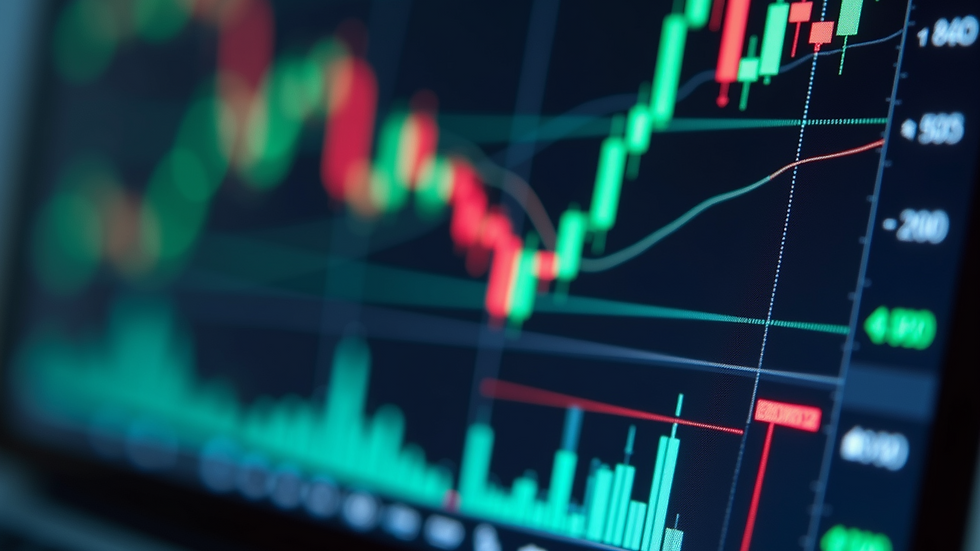Do Fundamentals Still Matter? How the Next U.S. President Impacts Your Investments
- forex368

- Jul 11
- 4 min read
While headlines and political developments can cause short-term market fluctuations, long-term investors often rely on fundamentals.
Fundamentals refer to the intrinsic value of an investment, based on factors like earnings, revenue, economic indicators, and overall financial health.
Key Considerations for Investors
Economic Policies: The economic policies proposed by each candidate can significantly impact various sectors. Harris is expected to continue Biden’s policies, focusing on infrastructure, green energy, and healthcare. In contrast, Trump’s policies may lean towards deregulation and tax cuts for corporations.
Sector Impact:
Green Energy: Harris’s focus on climate change and renewable energy could benefit green energy stocks.
Healthcare: Expansion of healthcare coverage under Harris might bolster healthcare stocks.
Finance and Manufacturing: Trump’s policies could favor financial institutions and traditional manufacturing industries.
Regulation and Taxation: Different approaches to regulation and corporate taxation can alter the investment landscape. Harris may push for higher corporate taxes and stricter regulations, while Trump may advocate for deregulation and lower taxes.
Trump vs. Harris: Geopolitical Implications
Understanding the geopolitical stance of each candidate can provide further insight into potential market impacts. Trump and Harris have distinct approaches to key international issues like NATO, China, tariffs, and isolationism, each carrying different investment implications.
NATO
Trump: Trump has been critical of NATO, advocating for member countries to increase their defense spending. This stance has raised concerns about the future stability of the alliance and the U.S.'s commitment to collective security. If Trump is re-elected, defense stocks could see volatility based on changing international defense dynamics.
Harris: Harris is likely to continue Biden's supportive stance towards NATO, emphasizing strong alliances and collective security. This stability could benefit defense contractors and companies involved in international projects reliant on secure geopolitical relations.
China
Trump: Known for his hardline stance on China, Trump is expected to continue his confrontational policies, including tariffs and sanctions. This could impact companies with significant exposure to China, particularly in the tech and manufacturing sectors.
Harris: While Harris might maintain a firm stance on critical issues, she is expected to adopt a more diplomatic approach, potentially easing some of the trade tensions. This could benefit multinational corporations and industries heavily dependent on Chinese supply chains.
Tariffs
Trump: Trump's administration has frequently used tariffs as a tool to protect American industries, leading to higher costs for imported goods. If Trump returns to office, sectors like agriculture and manufacturing could experience increased volatility due to tariff-related trade disputes.
Harris: Harris is likely to seek more balanced trade policies, potentially reducing the reliance on tariffs. This could provide more stability for industries affected by international trade and lower costs for businesses reliant on imported materials.
Isolationism
Trump: Trump’s "America First" policy has emphasized isolationism, including reduced participation in international agreements and a focus on domestic industries. While this could benefit certain U.S. sectors, it might create challenges for companies reliant on global cooperation and international markets.
Harris: In contrast, Harris is expected to embrace multilateralism, promoting international cooperation and re-engagement in global agreements. This approach could foster a more predictable international business environment, benefiting global trade and investment.
Does This Mean Fundamentals Are Irrelevant?
Absolutely not. Fundamentals are crucial, but they must be viewed through the lens of the current political and economic context. Here’s why:
Long-Term vs. Short-Term
Short-term traders might react to political news with quick buys or sells, but long-term investors should focus on how political changes will affect the fundamentals of their investments over time. For instance, if Harris's green energy policies are likely to pass, the fundamentals of green energy companies might improve.
Diversification and Risk Management
Given the political uncertainty, diversification and risk management become even more critical. Spread your investments across different sectors and asset classes to mitigate the risks associated with political volatility.
Traders’ Game Plan: Navigating the Biden Exit and Harris Entry
Analysing the Current Landscape
Economic Indicators: Keep an eye on key economic indicators like GDP growth, employment rates, and consumer spending, which can provide insights into the overall economic health and influence of political policies.
Sector Performance: Monitor how different sectors perform under changing political climates. Historical data can offer clues about which sectors might benefit from certain political regimes.
Strategic Moves
Stay Informed: Regularly update yourself with reliable sources of news and analysis. Platforms like Bloomberg provide real-time insights that can help you make informed decisions.
Review Your Portfolio: Assess how much exposure you have to sectors that might be impacted by the political shift. Consider reallocating assets to align with the anticipated policies of the new administration.
Leverage Expert Insights: Follow the advice of experienced market observers and analysts. For example, BMO Wealth suggests that the initial reaction to Harris’s candidacy is likely to be positive for risk assets, offering potential opportunities for savvy traders.
Fundamentals in Focus
While the political landscape can create noise and volatility, the fundamentals of an investment remain paramount. By understanding the policies and potential impacts of each presidential candidate, investors can make more informed decisions.
The key is to balance the immediate market reactions with a long-term perspective, ensuring that your investment strategy remains robust regardless of who sits in the Oval Office.
As we navigate these turbulent times, remember that a well-researched, diversified portfolio grounded in solid fundamentals will always stand the test of time.
So, whether it's Harris, Trump, or another candidate, keep your focus on the underlying value of your investments and stay prepared for the opportunities and challenges ahead.





